Sustainable Gardening means gardening in a smart and eco-friendly way. It’s all about giving back to mother nature by using organic growing methods so you use fewer chemicals and adopt greener alternatives when you’re gardening. Food produced in a sustainable garden is rich in terms of both nutrients and taste!
Sustainability isn’t just a one-time practice, it’s actually a lifestyle that promises significant long-term rewards, both with health and cost savings.
Here are 12 awesome sustainable gardening ideas that you should consider experimenting with within your garden:
1. Garden Design
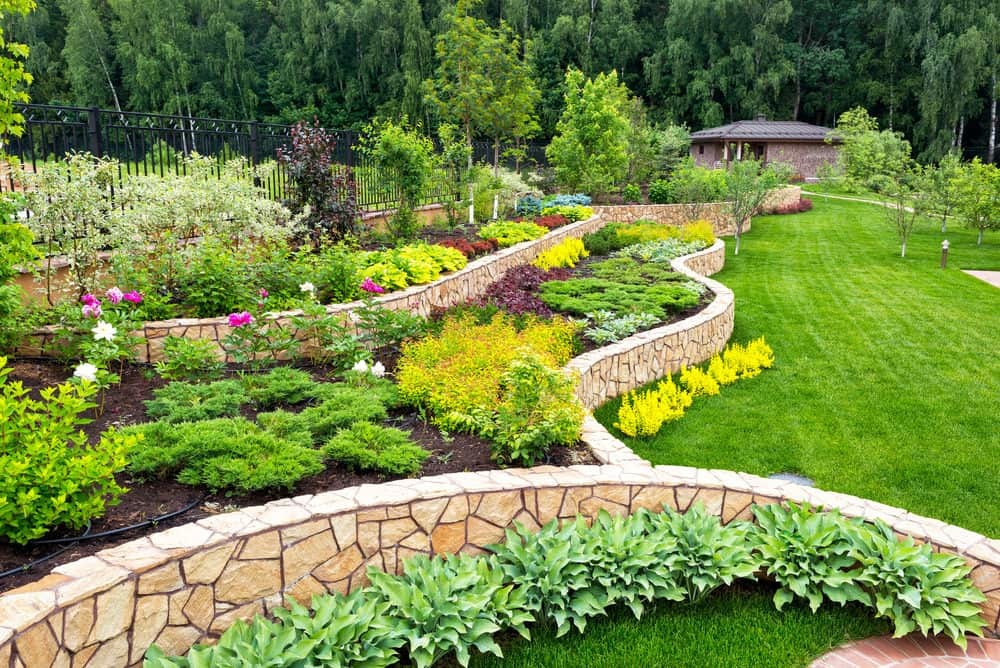
There are many water conservation and soil preparation practices that you may incorporate into your garden design to make it greener and reduce its impact on the environment.
Sustainable design is quite comprehensive; when you’re planning out your garden, think about the different plants you want to grow. The shadow-loving plants should be planted in the shade of tall, lush plants where they get plenty of shade. Plants that love the sun should be planted in sunny areas where they can enjoy being pampered. Plants that crave water should be planted in moist areas of your garden so they remain healthy with minimal care.
By planning all these points out in advance, you can conserve plenty of resources while nourishing a good, healthy garden.
2. Compost Your Green Waste
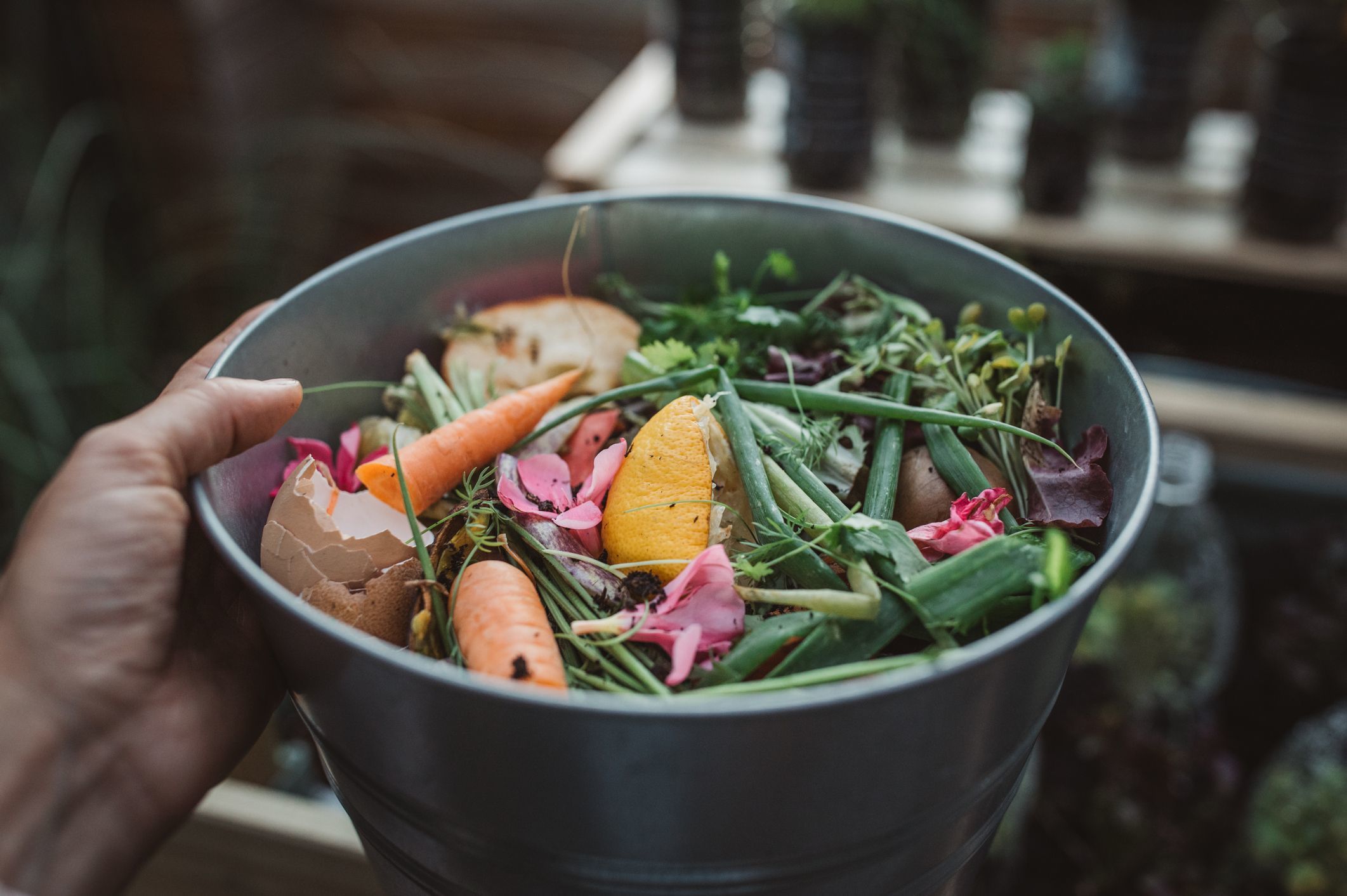
 One of my favorite sustainable gardening practices is composting — recycling your food and other natural waste to be used as organic fertilizer. Instead of throwing away your dead leaves, flower heads, and grass clippings, you can compost them into nutrient-rich, organic fertilizer for your garden. This will make your soil richer and your produce healthier and more delicious. In fact, making your own compost is crucial both for organic gardening and for sustainable living. When you compost food scraps, garden waste, and other biodegradable materials at home, you will reduce waste, getting you closer to living a zero-waste lifestyle.
One of my favorite sustainable gardening practices is composting — recycling your food and other natural waste to be used as organic fertilizer. Instead of throwing away your dead leaves, flower heads, and grass clippings, you can compost them into nutrient-rich, organic fertilizer for your garden. This will make your soil richer and your produce healthier and more delicious. In fact, making your own compost is crucial both for organic gardening and for sustainable living. When you compost food scraps, garden waste, and other biodegradable materials at home, you will reduce waste, getting you closer to living a zero-waste lifestyle.
You can negotiate with your neighborhood schools, parks, and grocery stores to pick up their compostables as well.
3. Save Your Seeds
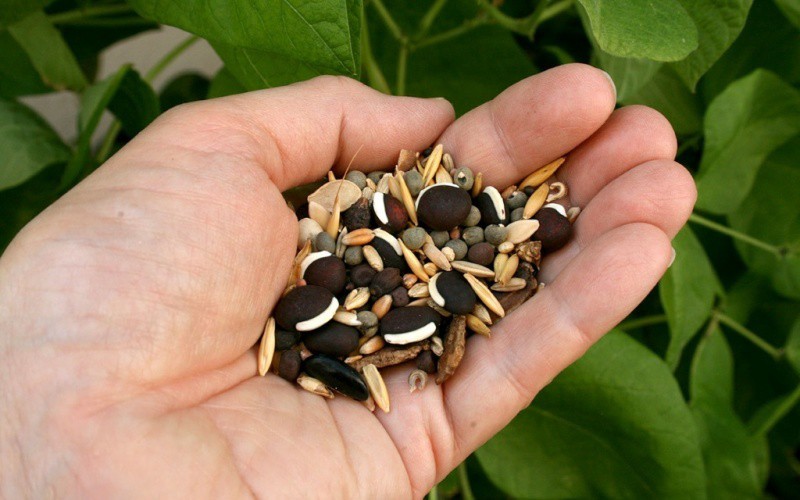
When your flowers and vegetables have matured, they’re going to produce seeds before they dry out. Collect these seeds and store them in a cool, dry place. You can use these seeds in the spring of next year to grow your plants again. You can start from the easier seeds to save such as tomatoes, peas, beans, and pepper, and work your way up from there.
This will save you tons of money on buying new seeds annually.
4. Celebrate the Natives
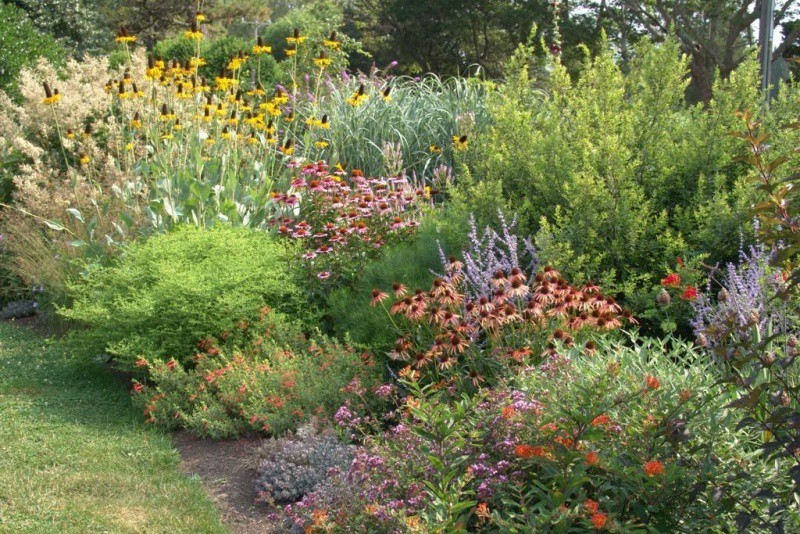
Native plants are those plants that grow naturally in your region. It’s easier to grow and sustain these plants because they’re already suited to your region's rainfall, soil, and climate. Native plants require less effort and even less water to maintain and grow. Moreover, by growing native plants you will also be helping in the preservation of the birds and insects in your area by providing food and shelter for them.
You should contact our gardening support about the native plants in your area.
5. Say No to Herbicides
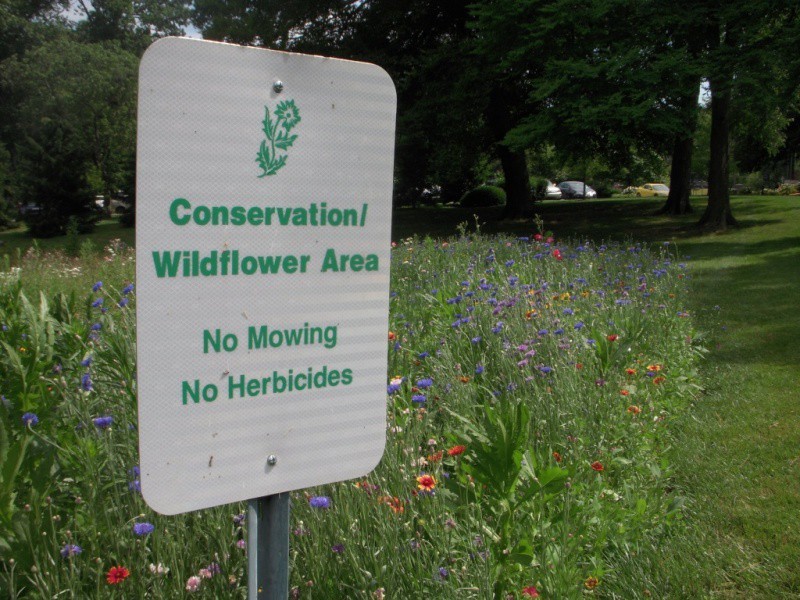
It’s best to use sustainable methods to maintain your garden. Instead of using chemical herbicides, you should use organic methods to control your weeds and pests. Weeds may be pulled out directly by the good old method of getting down on your knees and pulling them out. it’s not only greener but it’s a great exercise for you as well.
6. Use Beneficial Insects to Get Rid of Pests
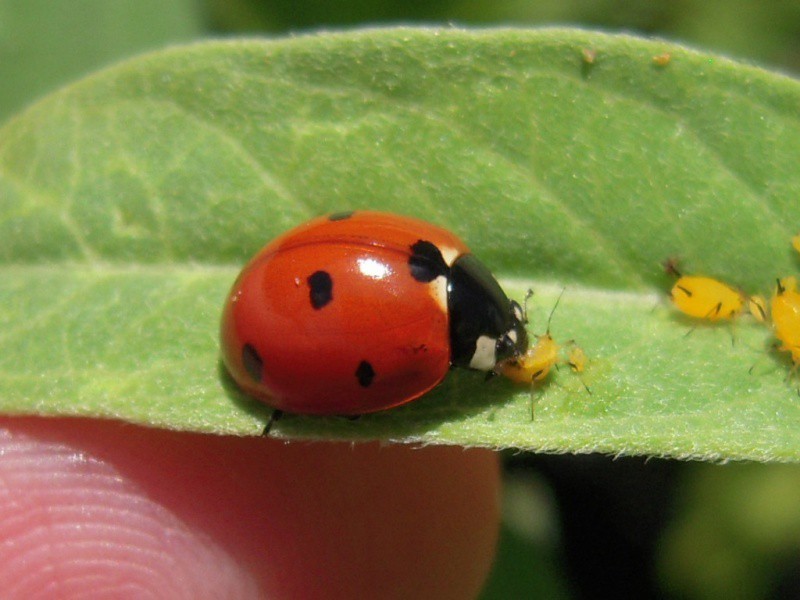
Beneficial insects are nature’s perfect way of controlling pests without using harmful chemicals. These insects eat up caterpillars, mites, aphids, and other bugs that consume plants, and the best part is that they’re completely harmless to pets and people.
One great example is ladybugs, which are not only cute and considered to be good luck, they also LOVE eating aphids!
Just look up your pest problem online and find the best insect suited to combat your problem. Sorry but you can't buy them you have to catch them in the wild.
7. Mulching
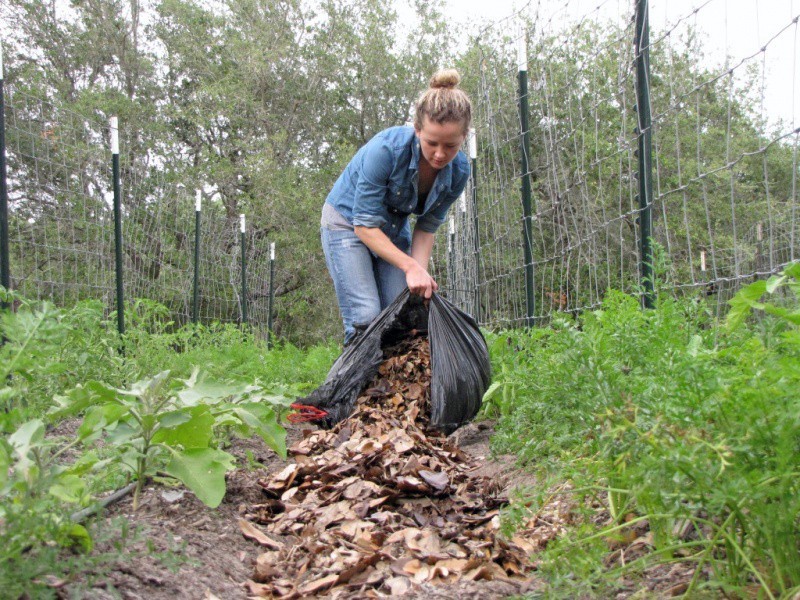
Another important technique that gardeners can employ to create low-maintenance, healthy gardens is mulching. Mulching has a multitude of benefits:
- Prevents drying out of the soil
- Suppresses weeds
- Moderates soil temperature
- Reduces compaction of soil
- Adds nutrients to the soil
- Prevents erosion
- Add to the ambiance of the gardens
Mulching may be done as soon as you’ve planted something; it may also be done to cover the bare soil in your garden. It’s one of the most important constituents of a sustainable garden.
8. Plant Trees
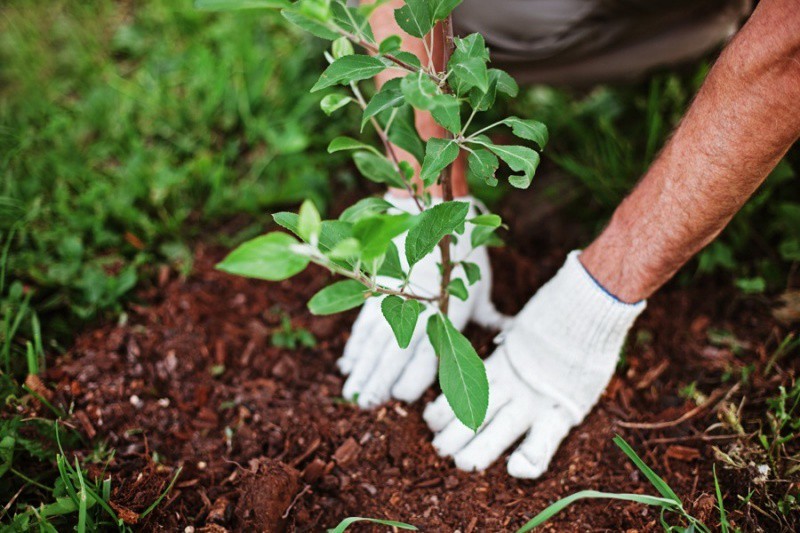
Planting trees helps store carbon from the atmosphere into the soil. It also helps cool your home down in the summer. Moreover, good, strong trees are a gorgeous sight to behold (who doesn’t love trees, right?) I personally feel that every garden should have at least one tree, however, if your garden doesn’t have room for one, you can always volunteer with a local Landcare group. That being said, if you don't know which tree is suitable for you, you can always ask a tree expert.
9. Fertilize with Manure
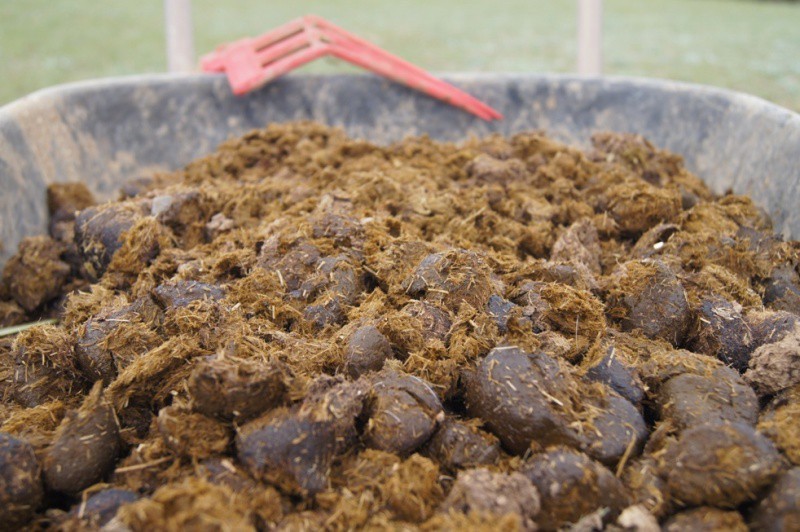
Manure is one of the best sustainable fertilizers that you can nourish your plants with. If you’ve got your own livestock then that’s awesome, but if you don’t you can try looking for some farmers in your local area who may have some you can buy.
10. Seaweed

Seaweed is excellent for most plants. It has many essential nutrients required by plants for healthy growth. If you live in an area where you may find seaweed in abundance, collect it, dry it and store it in a dry location to be crushed and used with your plants later.
11. Wooden Plant Tags
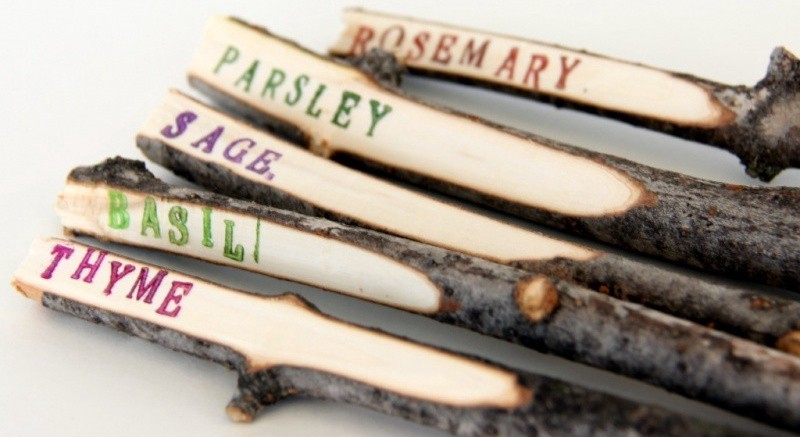
Instead of using paper and other materials, use shaved-off plant twigs as plant tags. It’s creative, cute, and cost-effective!
12. High-Tolerance, Low-Water Plants
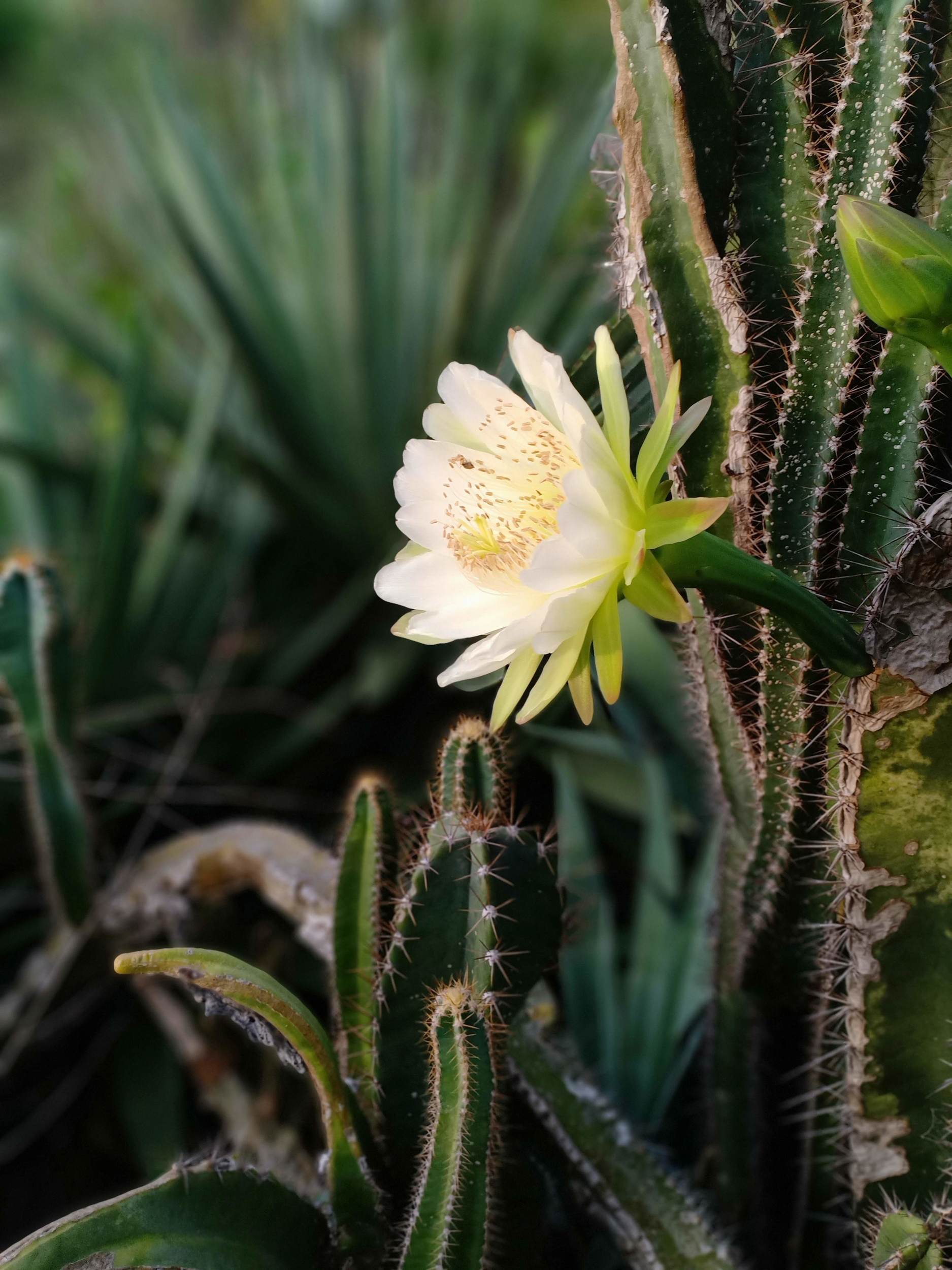
Another way to conserve resources while having a marvelous garden is to plant high-tolerance plants that require less maintenance and water such as succulents and cactus-type plants. These plants are perfect for a beautiful, earth-friendly garden.
There’s plenty of creative additions that you can make to add a personal touch to your sustainable garden. It’s a wonderful hobby that promises good exercise, healthy food, and benefits to the environment! What are your favorite green gardening habits?
